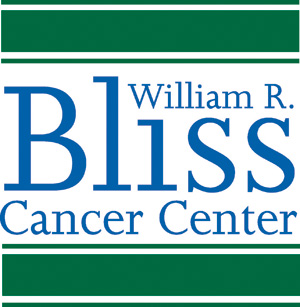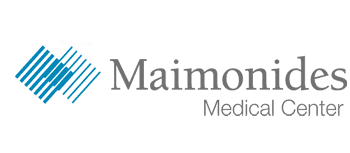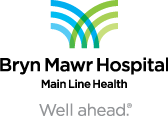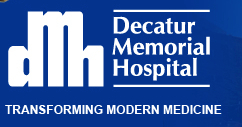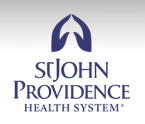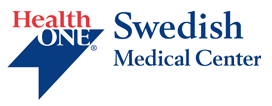Temozolomide and Radiation Therapy With or Without Bevacizumab in Treating Patients With Newly Diagnosed Glioblastoma
| Status: | Completed |
|---|---|
| Conditions: | Brain Cancer |
| Therapuetic Areas: | Oncology |
| Healthy: | No |
| Age Range: | 18 - Any |
| Updated: | 2/1/2018 |
| Start Date: | April 15, 2009 |
| End Date: | March 17, 2013 |
Phase III Double-blind Placebo-Controlled Trial of Conventional Concurrent Chemoradiation and Adjuvant Temozolomide Plus Bevacizumab Versus Conventional Concurrent Chemoradiation and Adjuvant Temozolomide in Patients With Newly Diagnosed Glioblastoma
This randomized phase III trial studies temozolomide (TMZ) and radiation therapy (RT) to
compare how well they work with or without bevacizumab in treating patients with newly
diagnosed glioblastoma or gliosarcoma. Drugs used in chemotherapy, such as temozolomide, work
in different ways to stop the growth of tumor cells, either by killing the cells, by stopping
them from dividing, or by stopping them from spreading. Radiation therapy uses high-energy
x-rays to kill tumor cells. Monoclonal antibodies, such as bevacizumab, may find tumor cells
and help kill them. It is not yet known whether temozolomide and radiation therapy are more
effective when given together with or without bevacizumab in treating glioblastoma or
gliosarcoma.
compare how well they work with or without bevacizumab in treating patients with newly
diagnosed glioblastoma or gliosarcoma. Drugs used in chemotherapy, such as temozolomide, work
in different ways to stop the growth of tumor cells, either by killing the cells, by stopping
them from dividing, or by stopping them from spreading. Radiation therapy uses high-energy
x-rays to kill tumor cells. Monoclonal antibodies, such as bevacizumab, may find tumor cells
and help kill them. It is not yet known whether temozolomide and radiation therapy are more
effective when given together with or without bevacizumab in treating glioblastoma or
gliosarcoma.
PRIMARY OBJECTIVES:
I. To determine whether the addition of bevacizumab to temozolomide and radiation improves
efficacy as measured by progression-free and/or overall survival.
II. To assess the association between overall survival and K^trans change from T1 to T2.
(ACRIN 6686) III. To assess the association between overall survival and spin echo cerebral
blood volume (CBV) change from T1 to T2. (ACRIN 6686)
SECONDARY OBJECTIVES:
I. To determine whether the tumor molecular profile conferring a mesenchymal/angiogenic
phenotype is associated with a selective increase in benefit, as measured by either overall
survival or progression-free survival, from the addition of bevacizumab.
II. To compare and record the toxicities of the conventional and bevacizumab-containing
regimens.
III. To assess the association between progression-free survival and K^trans change from T1
to T2. (ACRIN 6686) IV. To assess the association between progression-free survival and spin
echo CBV change from T1 to T2. (ACRIN 6686) V. To assess the association between values of
K^trans and spin echo CBV measured separately at T0 and at T1, and overall and
progression-free survival. (ACRIN 6686) VI. To assess the association between overall
survival and K^trans changes from T0 to T1 and from T2 to T3. (ACRIN 6686) VII. To assess the
association between overall survival and spin echo CBV changes from T0 to T1 and from T2 to
T3. (ACRIN 6686) VIII. To assess the association between overall survival and apparent
diffusion coefficient (ADC) change from T0 to T1. (ACRIN 6686) IX. To assess the association
between overall survival and ADC change from T1 to T2. (ACRIN 6686) X. To assess the
association between progression-free survival and ADC change from T0 to T1. (ACRIN 6686) XI.
To assess the association between progression-free survival and ADC change from T1 to T2.
(ACRIN 6686) XII. To assess the association between T1 values of ADC and overall and
progression-free survival. (ACRIN 6686) XIII. To assess the association between change in
lesion size between T1 and T3, as measured by advanced magnetic resonance imaging (MRI), and
overall and progression-free survival. (ACRIN 6686)
TERTIARY OBJECTIVES:
I. To determine the differential acute effects associated with the addition of bevacizumab to
temozolomide and radiation, as compared to the conventional arm, on measures of
neurocognitive function, health-related quality of life, and symptoms during radiation and
across the longitudinal progression-free interval.
II. To determine the relationship of neurocognitive function, health-related quality of life,
and symptoms, with progression-free and overall survival.
III. To determine the association between tumor molecular profile (i.e.,
mesenchymal/angiogenic phenotype and proneural phenotype) and neurocognitive function,
health-related quality of life, and symptoms.
IV. To describe the association between health-related quality of life as measured by the
European Organization for Research and Treatment Quality of Life Questionnaire-Core 30/Brain
Cancer Module-20 (EORTC-QL30/BCM20) and mean symptom severity as measured by the M. D.
Anderson Symptom Inventory Brain Tumor Module (MDASI-BT) in patients enrolled in this study.
V. To evaluate the relationship between self-reported neurocognitive function and objectively
measured tests of neurocognitive function (NCF).
VI. To assess the association between measures of change in enhancing tumor size at week 22
and overall survival in participants with glioma receiving chemoradiotherapy with and without
bevacizumab.
VII. To assess the association between measures of change in T2-based tumor size at week 22
and overall survival in participants with glioma receiving chemoradiotherapy with and without
bevacizumab.
VIII. To assess the association between changes in ADC values and overall survival in
participants with glioma receiving chemoradiotherapy with and without bevacizumab.
OUTLINE: Patients are randomized to 1 of 2 treatment arms (there are also two registration
steps prior to randomization which are labeled as "arms" in ClinicalTrials.gov to facilitate
entry of results into the website).
ARM I: Patients undergo intensity-modulated radiation therapy or 3-dimensional conformal
radiation therapy 5 days a week for 6 weeks and receive temozolomide orally (PO) once daily
(QD) for up to 7 weeks. Beginning 4 weeks after completion of chemotherapy and radiation
therapy, patients receive temozolomide PO QD on days 1-5. Treatment with temozolomide repeats
every 28 days for up to 12 courses in the absence of disease progression or unacceptable
toxicity. Patients also receive placebo IV over 30-90 minutes once every 2 weeks beginning in
week 4 of chemotherapy and radiation therapy and continuing until the completion of
temozolomide.
ARM II: Patients undergo radiation therapy and receive temozolomide as in Arm I. Patients
also receive bevacizumab IV over 30-90 minutes once every 2 weeks beginning in week 4 of
chemoradiotherapy and continuing until the completion of adjuvant temozolomide.
After completion of study treatment, patients are followed up every 3 months for 1 year,
every 4 months for 1 year, and then every 6 months thereafter.
I. To determine whether the addition of bevacizumab to temozolomide and radiation improves
efficacy as measured by progression-free and/or overall survival.
II. To assess the association between overall survival and K^trans change from T1 to T2.
(ACRIN 6686) III. To assess the association between overall survival and spin echo cerebral
blood volume (CBV) change from T1 to T2. (ACRIN 6686)
SECONDARY OBJECTIVES:
I. To determine whether the tumor molecular profile conferring a mesenchymal/angiogenic
phenotype is associated with a selective increase in benefit, as measured by either overall
survival or progression-free survival, from the addition of bevacizumab.
II. To compare and record the toxicities of the conventional and bevacizumab-containing
regimens.
III. To assess the association between progression-free survival and K^trans change from T1
to T2. (ACRIN 6686) IV. To assess the association between progression-free survival and spin
echo CBV change from T1 to T2. (ACRIN 6686) V. To assess the association between values of
K^trans and spin echo CBV measured separately at T0 and at T1, and overall and
progression-free survival. (ACRIN 6686) VI. To assess the association between overall
survival and K^trans changes from T0 to T1 and from T2 to T3. (ACRIN 6686) VII. To assess the
association between overall survival and spin echo CBV changes from T0 to T1 and from T2 to
T3. (ACRIN 6686) VIII. To assess the association between overall survival and apparent
diffusion coefficient (ADC) change from T0 to T1. (ACRIN 6686) IX. To assess the association
between overall survival and ADC change from T1 to T2. (ACRIN 6686) X. To assess the
association between progression-free survival and ADC change from T0 to T1. (ACRIN 6686) XI.
To assess the association between progression-free survival and ADC change from T1 to T2.
(ACRIN 6686) XII. To assess the association between T1 values of ADC and overall and
progression-free survival. (ACRIN 6686) XIII. To assess the association between change in
lesion size between T1 and T3, as measured by advanced magnetic resonance imaging (MRI), and
overall and progression-free survival. (ACRIN 6686)
TERTIARY OBJECTIVES:
I. To determine the differential acute effects associated with the addition of bevacizumab to
temozolomide and radiation, as compared to the conventional arm, on measures of
neurocognitive function, health-related quality of life, and symptoms during radiation and
across the longitudinal progression-free interval.
II. To determine the relationship of neurocognitive function, health-related quality of life,
and symptoms, with progression-free and overall survival.
III. To determine the association between tumor molecular profile (i.e.,
mesenchymal/angiogenic phenotype and proneural phenotype) and neurocognitive function,
health-related quality of life, and symptoms.
IV. To describe the association between health-related quality of life as measured by the
European Organization for Research and Treatment Quality of Life Questionnaire-Core 30/Brain
Cancer Module-20 (EORTC-QL30/BCM20) and mean symptom severity as measured by the M. D.
Anderson Symptom Inventory Brain Tumor Module (MDASI-BT) in patients enrolled in this study.
V. To evaluate the relationship between self-reported neurocognitive function and objectively
measured tests of neurocognitive function (NCF).
VI. To assess the association between measures of change in enhancing tumor size at week 22
and overall survival in participants with glioma receiving chemoradiotherapy with and without
bevacizumab.
VII. To assess the association between measures of change in T2-based tumor size at week 22
and overall survival in participants with glioma receiving chemoradiotherapy with and without
bevacizumab.
VIII. To assess the association between changes in ADC values and overall survival in
participants with glioma receiving chemoradiotherapy with and without bevacizumab.
OUTLINE: Patients are randomized to 1 of 2 treatment arms (there are also two registration
steps prior to randomization which are labeled as "arms" in ClinicalTrials.gov to facilitate
entry of results into the website).
ARM I: Patients undergo intensity-modulated radiation therapy or 3-dimensional conformal
radiation therapy 5 days a week for 6 weeks and receive temozolomide orally (PO) once daily
(QD) for up to 7 weeks. Beginning 4 weeks after completion of chemotherapy and radiation
therapy, patients receive temozolomide PO QD on days 1-5. Treatment with temozolomide repeats
every 28 days for up to 12 courses in the absence of disease progression or unacceptable
toxicity. Patients also receive placebo IV over 30-90 minutes once every 2 weeks beginning in
week 4 of chemotherapy and radiation therapy and continuing until the completion of
temozolomide.
ARM II: Patients undergo radiation therapy and receive temozolomide as in Arm I. Patients
also receive bevacizumab IV over 30-90 minutes once every 2 weeks beginning in week 4 of
chemoradiotherapy and continuing until the completion of adjuvant temozolomide.
After completion of study treatment, patients are followed up every 3 months for 1 year,
every 4 months for 1 year, and then every 6 months thereafter.
Inclusion Criteria:
- Histologically proven diagnosis of glioblastoma or gliosarcoma (World Health
Organization [WHO] grade IV) confirmed by central review prior to step 2 registration
- Tumor tissue that is determined by central pathology review prior to step 2
registration to be of sufficient size for analysis of O-6-methylguanine-DNA
methyltransferase (MGMT) and determination of molecular profile
- Patients must have at least 1 block of tumor tissue; submission of 2 blocks is
strongly encouraged to maximize the chances of eligibility; at least 1 cubic
centimeter of tissue composed primarily of tumor must be present
- CUSA (Cavitron ultrasonic aspirator)-derived material is not allowed; fresh
frozen tumor tissue acquisition is encouraged
- Diagnosis must be made by surgical excision, either partial or complete;
stereotactic biopsy is not allowed because it will not provide sufficient tissue
for MGMT analysis
- The tumor tissue should be sent as soon as possible to maximize the likelihood of
eligibility; tumor tissue should be submitted by 4 weeks after the surgical
procedure so that the study registration and treatment can commence by the
mandatory 5 week post-surgery outer limit
- Sites must submit tissue fir central review in order to obtain the MGMT analysis;
patients from sites not following protocol-specified process for obtaining MGMT
results will be made ineligible
- The tumor must have a supratentorial component
- History/physical examination within 14 days prior to step 2 registration
- The patient must have recovered from the effects of surgery, postoperative infection,
and other complications before step 2 registration
- A diagnostic contrast-enhanced MRI of the brain must be performed preoperatively and
postoperatively prior to the initiation of radiotherapy; the postoperative scan must
be performed within 28 days prior to step 1 registration
- An MRI or computed tomography (CT) scan (potentially in addition to the
postoperative scan) must be obtained within 10 days prior to the start of
radiation therapy and must not demonstrate significant postoperative hemorrhage
defined as > 1 cm diameter of blood; if > 1 cm of acute blood is detected, the
patient will be ineligible for this trial; the radiation planning MRI or CT scan
may be used to determine presence of hemorrhage
- Patients unable to undergo MR imaging because of non-compatible devices can be
enrolled, provided pre- and postoperative contrast-enhanced CT scans are obtained
and are of sufficient quality; preoperative and postoperative scans must be the
same type; such patients cannot be enrolled into the advanced imaging component
- Documentation of steroid doses within 14 days prior to step 2 registration
- Karnofsky performance status >= 70
- Absolute neutrophil count (ANC) >= 1,800 cells/mm^3
- Platelets >= 100,000 cells/mm^3
- Hemoglobin >= 10.0 g/dL (Note: the use of transfusion or other intervention to achieve
hemoglobin [Hgb] >= 10.0 g/dl is acceptable)
- Blood urea nitrogen (BUN) =< 30 mg/dL within 14 days prior to step 2 registration
- Creatinine =< 1.7 mg/dl within 14 days prior to step 2 registration
- Urine protein screened by urine analysis for urine protein creatinine (UPC) ratio; for
UPC ratio > 0.5, 24-hour urine protein should be obtained and the level should be <
1000 mg
- Bilirubin =< 2.0 mg/dl within 14 days prior to step 2 registration
- Alanine aminotransferase (ALT)/aspartate aminotransferase (AST) =< 3 x normal range
within 14 days prior to step 2 registration
- Systolic blood pressure =< 160 mg Hg or diastolic pressure =< 90 mm Hg within 14 days
prior to step 2 registration
- Electrocardiogram without evidence of acute cardiac ischemia within 14 days prior to
step 2 registration
- Prothrombin time/international normalized ratio (PT INR) < 1.4 for patients not on
warfarin confirmed by testing within 14 days prior to step 2 registration
- Patients on full-dose anticoagulants (e.g., warfarin or low molecular weight [LMW]
heparin) must meet both of the following criteria:
- No active bleeding or pathological condition that carries a high risk of bleeding
(e.g., tumor involving major vessels or known varices)
- In-range INR (between 2 and 3) on a stable dose of oral anticoagulant or on a
stable dose of LMW heparin
- Patient must provide study specific informed consent prior to study entry
- Women of childbearing potential and male participants must practice adequate
contraception
- For females of child-bearing potential, negative serum pregnancy test within 14 days
prior to step 2 registration
Exclusion Criteria:
- Prior invasive malignancy (except for non-melanomatous skin cancer) unless disease
free for >= 3 years; (for example, carcinoma in situ of the breast, oral cavity, and
cervix are all permissible)
- Recurrent or multifocal malignant gliomas
- Metastases detected below the tentorium or beyond the cranial vault
- Prior chemotherapy or radiosensitizers for cancers of the head and neck region; note
that prior chemotherapy for a different cancer is allowable, except prior temozolomide
or bevacizumab; prior use of Gliadel wafers or any other intratumoral or intracavitary
treatment are not permitted
- Prior radiotherapy to the head or neck (except for T1 glottic cancer), resulting in
overlap of radiation fields
- Severe, active co-morbidity, defined as follows:
- Unstable angina and/or congestive heart failure within the last 6 months
- Transmural myocardial infarction within the last 6 months
- Evidence of recent myocardial infarction or ischemia by the findings of S-T
elevations of >= 2 mm using the analysis of an electrocardiogram (EKG) performed
within 14 days of step 2 registration
- New York Heart Association grade II or greater congestive heart failure requiring
hospitalization within 12 months prior to step 2 registration
- History of stroke, cerebral vascular accident (CVA) or transient ischemic attack
within 6 months
- Serious and inadequately controlled cardiac arrhythmia
- Significant vascular disease (e.g., aortic aneurysm, history of aortic
dissection) or clinically significant peripheral vascular disease
- Evidence of bleeding diathesis or coagulopathy
- Serious or non-healing wound, ulcer, or bone fracture or history of abdominal
fistula, gastrointestinal perforation, intra-abdominal abscess major surgical
procedure, open biopsy, or significant traumatic injury within 28 days prior to
step 2 registration, with the exception of the craniotomy for tumor resection
- Acute bacterial or fungal infection requiring intravenous antibiotics at the time
of registration
- Chronic obstructive pulmonary disease exacerbation or other respiratory illness
requiring hospitalization or precluding study therapy at the time of step 2
registration
- Hepatic insufficiency resulting in clinical jaundice and/or coagulation defects;
note, however, that laboratory tests for liver function and coagulation
parameters are not required for entry into this protocol
- Acquired immune deficiency syndrome (AIDS) based upon current Center for Disease
Control (CDC) definition; note, however, that HIV testing is not required for
entry into this protocol; the need to exclude patients with AIDS from this
protocol is necessary because the treatments involved in this protocol may be
significantly immunosuppressive
- Active connective tissue disorders, such as lupus or scleroderma, that in the
opinion of the treating physician may put the patient at high risk for radiation
toxicity
- Any other major medical illnesses or psychiatric impairments that in the
investigator's opinion will prevent administration or completion of protocol
therapy
- Pregnancy or women of childbearing potential and men who are sexually active and not
willing/able to use medically acceptable forms of contraception
- Pregnant or lactating women
- Patients treated on any other therapeutic clinical protocols within 30 days prior to
study entry or during participation in the study
- For American College of Radiology Imaging Network (ACRIN) 6686 Advanced Imaging:
inability to undergo MRI (e.g., due to safety reasons, such as presence of a
pacemaker)
We found this trial at
325
sites
Porter Adventist Hospital Founded in 1930, Porter Adventist Hospital has provided people throughout Denver and...
Click here to add this to my saved trials
1201 Camino de Salud Northeast
Albuquerque, New Mexico 87131
Albuquerque, New Mexico 87131
(505) 272-4946

University of New Mexico Cancer Center It’s been 40 years since the New Mexico State...
Click here to add this to my saved trials
Click here to add this to my saved trials
City of Hope Comprehensive Cancer Center City of Hope is a leading research and treatment...
Click here to add this to my saved trials
University of Texas Medical Branch Established in 1891 as the University of Texas Medical Department,...
Click here to add this to my saved trials
West Michigan Cancer Center In 1994, Borgess Health Alliance and Bronson Healthcare Group opened the...
Click here to add this to my saved trials
4805 Northeast Glisan Street
Portland, Oregon 97213
Portland, Oregon 97213
(503) 215-1111

Providence Portland Medical Center We strive to give those we serve exceptional, compassionate health care...
Click here to add this to my saved trials
Naval Medical Center - Portsmouth Naval Medical Center Portsmouth, Virginia has proudly served the military...
Click here to add this to my saved trials
Rhode Island Hospital Founded in 1863, Rhode Island Hospital in Providence, RI, is a private,...
Click here to add this to my saved trials
University of Rochester The University of Rochester is one of the country's top-tier research universities....
Click here to add this to my saved trials
4502 Medical Drive
San Antonio, Texas 78284
San Antonio, Texas 78284
(210) 567-7000
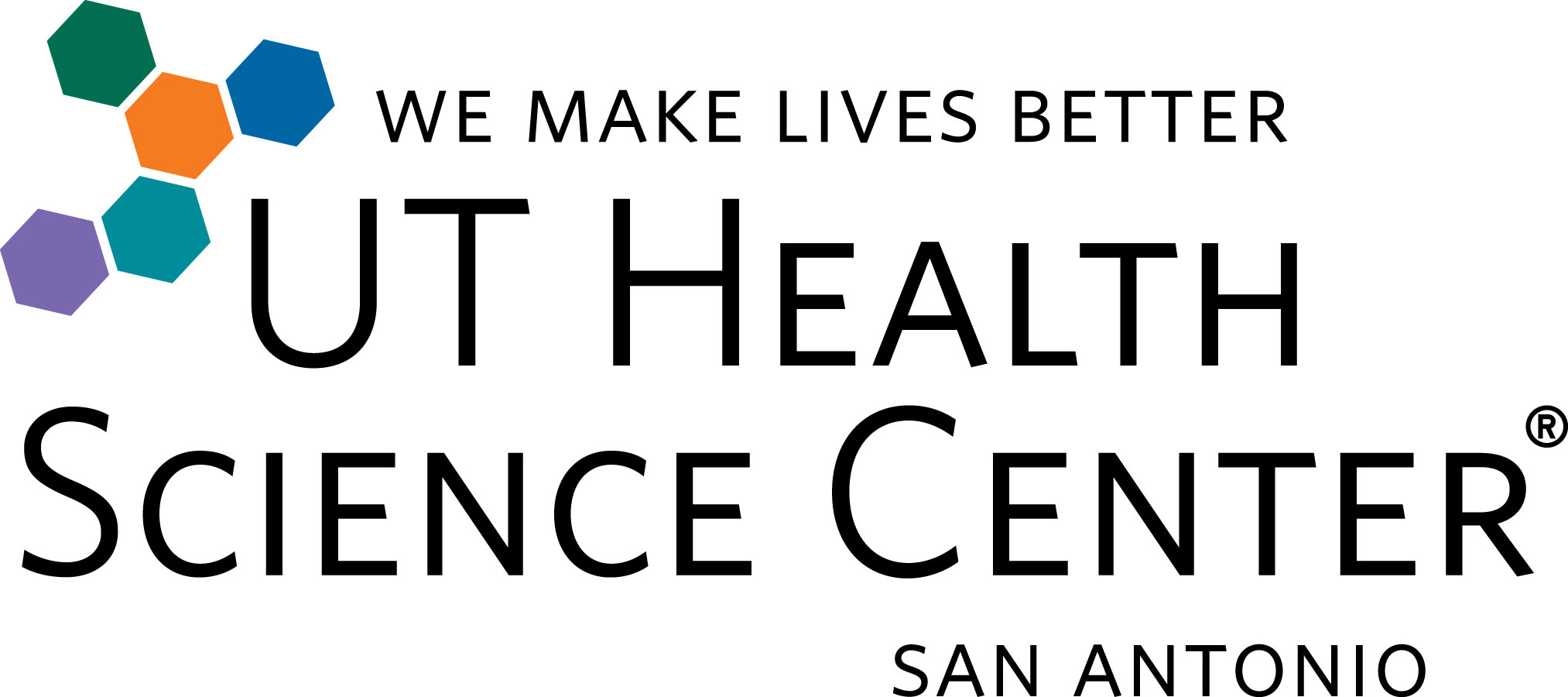
University of Texas Health Science Center at San Antonio The University of Texas Health Science...
Click here to add this to my saved trials
601 South Sherman Street
Spokane, Washington 99202
Spokane, Washington 99202
(509) 228-1000

Cancer Care Northwest - Spokane South Cancer Care Northwest is the Inland Northwest’s premier cancer...
Click here to add this to my saved trials
Click here to add this to my saved trials
Abington Memorial Hospital Abington Memorial Hospital (AMH) is a 665-bed, regional referral center and teaching...
Click here to add this to my saved trials
Akron General Medical Center It
Click here to add this to my saved trials
Click here to add this to my saved trials
Click here to add this to my saved trials
Click here to add this to my saved trials
Click here to add this to my saved trials
Click here to add this to my saved trials
Click here to add this to my saved trials
McFarland Clinic PC-William R Bliss Cancer Center The William R. Bliss Cancer Center at Mary...
Click here to add this to my saved trials
Click here to add this to my saved trials
Saint Joseph Mercy Hospital St. Joseph Mercy Ann Arbor Hospital is a 537-bed teaching hospital...
Click here to add this to my saved trials
Click here to add this to my saved trials
Click here to add this to my saved trials
Click here to add this to my saved trials
Click here to add this to my saved trials
Click here to add this to my saved trials
Click here to add this to my saved trials
Piedmont Hospital For more than a century, Piedmont Healthcare has been a recognized leader in...
Click here to add this to my saved trials
Click here to add this to my saved trials
Click here to add this to my saved trials
Click here to add this to my saved trials
Click here to add this to my saved trials
22 South Greene Street
Baltimore, Maryland 21201
Baltimore, Maryland 21201
410-328-7904

University of Maryland Greenebaum Cancer Center The University of Maryland Marlene and Stewart Greenebaum Cancer...
Click here to add this to my saved trials
Summa Barberton Hospital Summa Barberton Hospital is a full member of Summa Health System and...
Click here to add this to my saved trials
Click here to add this to my saved trials
Click here to add this to my saved trials
Click here to add this to my saved trials
Click here to add this to my saved trials
Click here to add this to my saved trials
Sanford Clinic North-Bemidgi Sanford Health is a voluntary, not-for-profit health care organization. Through its entities,...
Click here to add this to my saved trials
Click here to add this to my saved trials
Click here to add this to my saved trials
Click here to add this to my saved trials
Click here to add this to my saved trials
Click here to add this to my saved trials
Massachusetts General Hospital Cancer Center An integral part of one of the world
Click here to add this to my saved trials
Boulder Community Hospital Founded in 1922 as a community-owned and operated not-for-profit hospital, Boulder Community...
Click here to add this to my saved trials
Click here to add this to my saved trials
Click here to add this to my saved trials
Maimonides Medical Center At 103 years old, Maimonides Medical Center remains a vital and thriving...
Click here to add this to my saved trials
Click here to add this to my saved trials
Bryn Mawr Hospital Bryn Mawr Hospital, a nationally recognized community teaching hospital, is conveniently located...
Click here to add this to my saved trials
Click here to add this to my saved trials
Fairview Ridges Hospital Fairview Ridges Hospital is a 150-bed, Level III Trauma Care facility, offering...
Click here to add this to my saved trials
Click here to add this to my saved trials
Click here to add this to my saved trials
Aultman Health Foundation The Aultman Foundation will raise and administer funds in order to support...
Click here to add this to my saved trials
Click here to add this to my saved trials
Click here to add this to my saved trials
Click here to add this to my saved trials
Click here to add this to my saved trials
Click here to add this to my saved trials
Click here to add this to my saved trials
Click here to add this to my saved trials
1969 W Ogden Ave
Chicago, Illinois 60612
Chicago, Illinois 60612
(312) 864-6000

John H. Stroger, Jr. Hospital of Cook County The Level 1 Trauma Center is one...
Click here to add this to my saved trials
5841 S Maryland Ave
Chicago, Illinois 60637
Chicago, Illinois 60637
1-773-702-6180

University of Chicago Comprehensive Cancer Center The University of Chicago Comprehensive Cancer Center (UCCCC) is...
Click here to add this to my saved trials
Click here to add this to my saved trials
Click here to add this to my saved trials
MetroHealth Med Ctr The MetroHealth System is one of the largest, most comprehensive health care...
Click here to add this to my saved trials
Cleveland Clinic Foundation The Cleveland Clinic (formally known as The Cleveland Clinic Foundation) is a...
Click here to add this to my saved trials
Case Western Reserve Univ Continually ranked among America's best colleges, Case Western Reserve University has...
Click here to add this to my saved trials
18101 Lorain Avenue
Cleveland, Ohio 44111
Cleveland, Ohio 44111
216.476.7000

Cleveland Clinic Cancer Center at Fairview Hospital Fairview Hospital is a 488-bed hospital located at...
Click here to add this to my saved trials
Penrose-Saint Francis Healthcare Founded by the Sisters of St. Francis and the Sisters of Charity,...
Click here to add this to my saved trials
John B. Amos Cancer Center The John B. Amos Cancer Center located in Columbus, Georgia,...
Click here to add this to my saved trials
Click here to add this to my saved trials
Riverside Methodist Hospital Serving central Ohio since 1892, Riverside Methodist Hospital is consistently ranked one...
Click here to add this to my saved trials
The Mark H. Zangmeister Center At The Zangmeister Center, we appreciate that our patients have...
Click here to add this to my saved trials
Grant Medical Center Founded in 1900 in Columbus' downtown, Grant has grown into one of...
Click here to add this to my saved trials
Click here to add this to my saved trials
Click here to add this to my saved trials
Mercy Hospital Mercy Hospital, located in Coon Rapids, Minnesota, is a 271-bed non-profit hospital that...
Click here to add this to my saved trials
Click here to add this to my saved trials
Click here to add this to my saved trials
Click here to add this to my saved trials
Geisinger Medical Center Since 1915, Geisinger Medical Center has been known as the region’s resource...
Click here to add this to my saved trials
Click here to add this to my saved trials
Click here to add this to my saved trials
Decatur Memorial Hospital An American flag bearing only 48 stars waved above Decatur Memorial Hospital...
Click here to add this to my saved trials
Click here to add this to my saved trials
Mercy Medical Center - Des Moines Mercy Medical Center
Click here to add this to my saved trials
Iowa Methodist Medical Center Iowa Methodist Medical Center was established in 1901 in a single...
Click here to add this to my saved trials
Saint John Hospital and Medical Center Founded in 1952, St. John Hospital and Medical Center...
Click here to add this to my saved trials
Click here to add this to my saved trials
Click here to add this to my saved trials
Click here to add this to my saved trials
Click here to add this to my saved trials
900 W. Clairemont Ave.
Eau Claire, Wisconsin 54701
Eau Claire, Wisconsin 54701
715 839-3956

Marshfield Clinic Cancer Center at Sacred Heart Marshfield Clinic Cancer Care at Sacred Heart Hospital...
Click here to add this to my saved trials
Click here to add this to my saved trials









